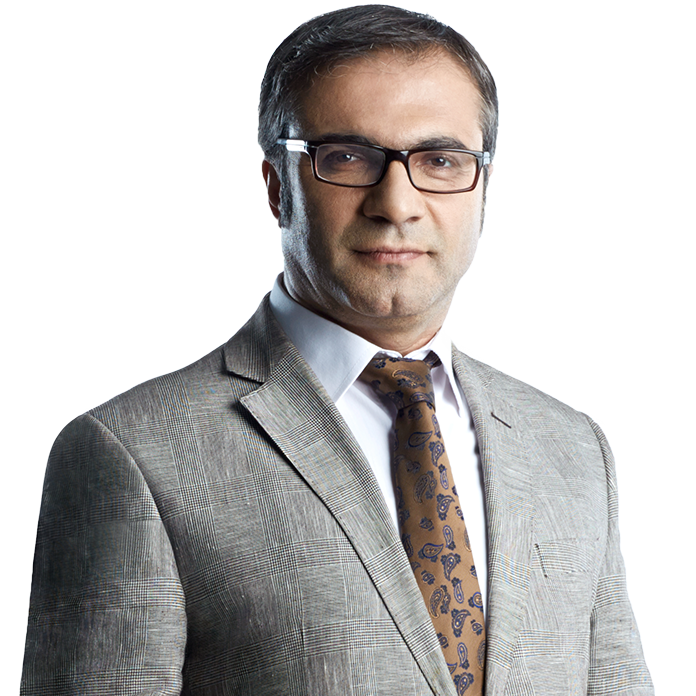France is a secular Catholic republic. Catholic means universal truth. You have no choice but to accept this universal truth. Otherwise, you cannot live with it. Thus, the entirety of Medieval Europe was Catholic. There was no other sect, because it was not given the option to exist. Thus, when the Catholics invaded Andalusia, they gave both Muslims and Jews three options: You either become Catholic, die, or leave. There is no religious pluralism in Catholicism. As an extension, religious pluralism was never experienced in Europe either. Yet, during the same period, different Islamic sects and religious communities coexisted under the Ottoman Empire. As a matter of fact, it even embraced the Jews of Andalusia. When the last population exchange took place in Istanbul, 48 percent of the people consisted of non-Muslims. There was a pluralist religious atmosphere during the classical age of Muslim states, and this social structure continued for centuries.
Meanwhile, French secularism waged war against the church during the modern period. The clashes were bloody. The state secularized and assumed the church’s role of signifying universal truth. In fact, all men of the cloth were demanded to make an oath to the state (the secular Catholic political authority). Thousands of priests who objected to this were obliged to leave the country in the early 1970s. This French secularism was not satisfied with demanding a political domain independent of sanctity. Moreover, it considered the sacred domain a rival, an obstacle, and opposition. Thus, it did not foresee any peace, unity, or solidarity with the sacred and profane domain. The sociological theory concerning this was established by French sociologist Durkheim. According to him, the sacred and profane are completely separate domains. The sacred is against the profane; it prevents it, and is regressive. The sacred and profane domains are enemies; they destroy one another and do not allow the other to exist. Therefore, in order to become profane, the sacred domain must be abandoned. Solidarity would no longer be provided by sanctity but by secular morality. Professional Ethics would ensure social solidarity. This would be possible through advancement triggered by modernity. Beyond being a sociological theorist, Durkheim was also a reformist. Despite all the objective sociological scientific ideologies, he pioneered the reform of secular education. He conducted a series of studies in collaboration with the French National Education Ministry to reform the secondary education system. He developed the Good French citizen project. An education awareness free from sanctity – in fact, one that fights against sanctity – is also a part of this citizenship project.
Prior to Durkheim, Jean-Jacques Rousseau also led the pursuit for equal citizenship and a religion independent of the church. In fact, he is the first person to come up with the idea. He calls religion adopted independently of the church “civil religion.” The civil religion he discusses referred to a citizen who acts in accordance with a program that is separate from the church and adopted by the state. In a sense, he produced secular Catholicism as a political authority.
French elites thought everybody would leap at the opportunity to join the secular Catholic republic and become “civilized.” However, their projects could not hold up against villagers and the uneducated worker Muslim masses. Especially the children of those who suffered at the hands of colonialism were trapped in the ghettos in Paris and Lyon. These were major problems. The secular Catholic republic deprived them of jobs and respectability. They were angry youth, who were thus jobless and had no respectability. The republic, equality, modernity and secularism were in a deep crisis. According to the French, their civilization, republic and secularism was absolute, the truth, and signified humanity. There could be no problem with them. The source of the problem could only be the “enemies of the republic”! An effective symbol was chosen for this: Freedom and the headscarf! Freedom and women. Freedom was used to veil the secular Catholic republic’s crisis. The enemy chosen against this was the headscarf – of course, specifically Muslims. Thus, a committee was established for the headscarf ban. This time, Alain Touraine, famous sociologist and author of the book, “Can We Live Together?” was involved as well. He, too, signed his name under the ban for freedom.
French President Emmanuel Macron is the new, young, dynamic and affable liberal savior of the secular Catholic republic. In fact, he is a collective figure, who bears all liberal, left, and nationalistic elements. He wants to make Muslims experience a second Andalusia. He wants to overcome problems such as xenophobia, racism, unemployment, ostracization, and refugee influx, through animosity towards Islam. He is gathering all the “others” within the single other: the “Muslim other.” Here, the Muslim is foreign, black, a refugee, proletarian. The secular Catholic republic’s crisis is being attributed to this.




















